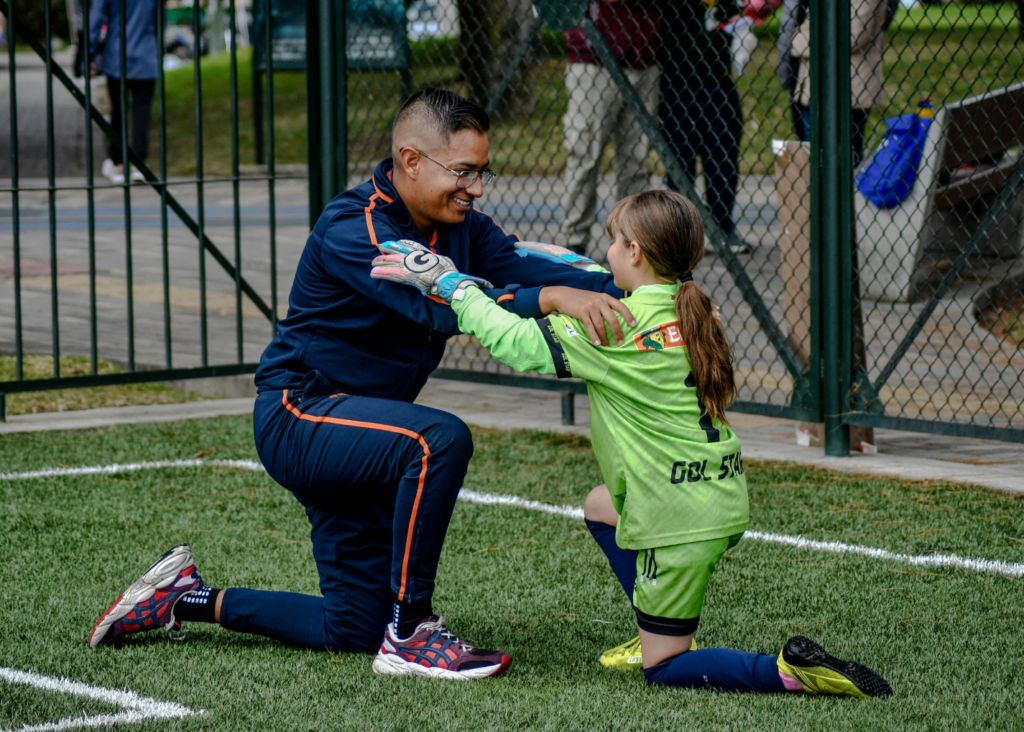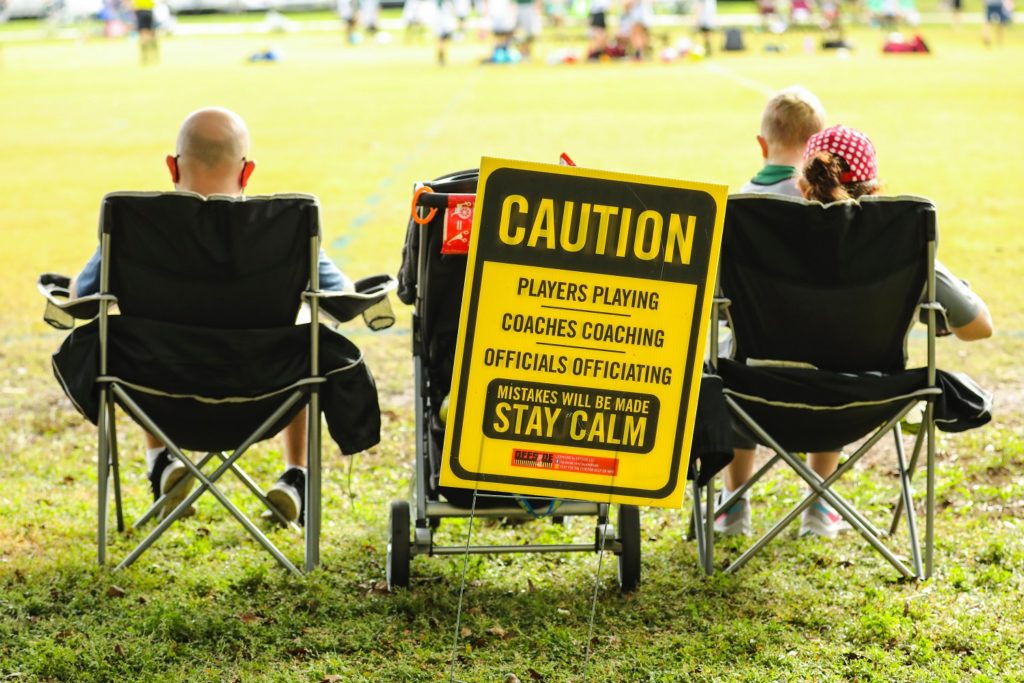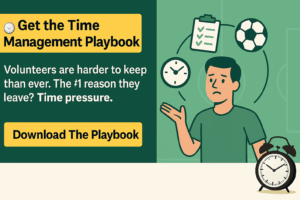How can I be a supportive soccer parent?
So your kid has started to play soccer. Whether you encouraged this and are an avid fan of the world’s most popular sport, or you don’t know much about soccer but your kid is eager to play, there’s always something that parents can find out about how to be as helpful as they can.
Whether it’s sideline etiquette, supporting your kid on and off the field, or being respectful to others, there are many ways to be supportive.
Don’t Criticize Them
First, it’s essential to clarify. There is a difference between criticism and giving advice. It is equally unhelpful to your kid to act as if there is nothing wrong with how they play and that they are perfect as a player as it is to do the opposite. However, it’s best to both limit the advice you give, and also largely leave it to the coaches.
Criticism, on the other hand, can sometimes be damaging. Unlike feedback, criticism often doesn’t offer any ways to improve at a certain aspect or potential bright spots. Criticism can discourage your child, and it could even make them not want to play.
Try to avoid being too harsh because you want your kids to enjoy when they play and, especially when they are younger, not feel too much pressure. As every youth soccer coach has said at some point, “This isn’t the World Cup.”

Try to Learn the Rules
At some point in their soccer career, your kid will be confused about a rule. You may not be able to explain it.
Don’t feel bad about it. There are simply so many different rules and strange technicalities that don’t come up often. Even at the professional level, there are strange exceptions that the players seem to learn at the exact same time the fans and broadcasters do. What you can do to prepare for this is to make sure you have the basics covered.
Take the offside rule, for example. While this isn’t a rule that is necessarily used at all levels of soccer — meaning your kid might not need to know it when they start playing — it is one that eventually becomes a crucial part of the game.
Now, the coaches will explain it to your child when they need to learn it, but it often helps to have a parent know and be able to explain these things. It will also make it much easier for you to understand what is happening on the field.
Try to focus on a few crucial rules, and as time goes on and your young player progresses through different levels, you’ll gradually pick up more. It can also be encouraging to see you take an interest in the rules of the game they play.
Be Kind to Everyone — Even the Referees
Remember the phrase, “This isn’t the World Cup?” Well, it’s true.
Some soccer parents in the US have a reputation for being, well, a little nasty at times. This stereotype includes parents being aggressive to other parents, referees, and even coaches. Often, with coaches, it happens if they don’t play their kids enough.
While this is generally not true, many soccer parents are lovely people and eager to make sure everyone has a good time. There are parents who aren’t exactly the easiest to deal with. We’ve seen this even at the highest levels of soccer. Just look at the Reyna family drama.
The fact is, the stakes at youth soccer are generally very low, hence the expression about the World Cup. There are many benefits to playing soccer, but the objective should be to have fun, build fitness, learn, and enjoy the beautiful game.
It should not be a win-at-all costs approach. So don’t pressure the coach to play your kid at all times. Don’t be nasty to other parents. Just be reasonable. This will make soccer much, much more enjoyable for both you and your kids.
This applies to your kids, too. Try to make sure they behave well toward other players, their teammates, the referees — everybody. Good sportsmanship matters, and everyone around you will be happy for you to keep it that way. This is a lesson that will help them throughout their lives.
One final note: it’s sort of a running joke to act as if referees are terrible. Nobody likes it when a call goes against them (or their kid). But referees are people, too, and like everyone else, they are just trying to do what is right and make sure the game runs smoothly and everyone has fun.
Make sure your kid is kind towards the ref, and make sure that you, yourself, are too. Don’t make any comments or anything after what you deem a bad call. Just move on. Again, this isn’t the World Cup.

Be Prepared
As a soccer parent, it is crucial to be prepared. Younger kids might not be able to remember when their games and practices are, so you need to keep track of these, or at the very least establish some communication with the coaches so they can keep you up to date.
Being on time for games and practices is also crucial. Remember: games can be short, as the younger the age group, the less time there typically is during the game. If you show up too late, there might not be much, or any, time for your kid to play. The same goes with practices. It’s to everyone’s advantage, yours, your kids, and the coaches, for parents to show up on time with kids who are ready to play.
Another aspect of this is that the mood that you set before practices and games will affect how your young player feels when they play. If you are stressed and rushing them, they will not have as good of an experience. This will affect their performance. Try to keep your stress level down and set them up for a great experience.
You also need to be prepared for potential setbacks. If your kid becomes particularly upset after a game, they may need encouragement. If they get hurt, you should find out who you need to contact and when they can play again. If they get in a disagreement with another player, you should be prepared to help them find a resolution. This will make sure everything runs as smoothly as possible.
Encourage Teamwork/Team Bonding
Teamwork is an important part of life, even off the pitch. However, it’s especially important on the pitch because your child will have significantly more fun if they are playing alongside people that they like. Learning how to work as a team will also help them later in life.
Bringing snacks is a simple yet easy way to make players get along with each other. Post-game snacks, for instance, are a great way to get players to stay a little longer after games and can encourage players to converse and hang out.
You can also arrange for events to make sure they hang out with each other outside of the pitch. Everybody loves a party, and it’s a good excuse to bring players together. A player’s birthday, for instance, could be a good opportunity to celebrate with the team, whether it’s a party or simply bringing cupcakes to a game or practice. Another potential party opportunity is at the end of the season. And if you are looking for some awards to give out at an end-of-season party, we have some ideas.
Don’t Get Carried Away with Results
Your kid scored a hat trick. Everyone will remember this day. This is the day that your kid finally unleashed their greatness, their star ability. They will be the next Lionel Messi.
It’s easy to see a little success and start getting ahead of ourselves. But every good parent needs to manage their expectations, be realistic, and not let some results influence them too much.
It’s obviously great when your kid has a good game, but that does not mean they will become the next global star. Similarly, a winning streak is great for morale, but don’t think that all of a sudden, you are watching the greatest team of all time.
This kind of pressure is also not ideal to put on your kid or their team. They are playing for fun or maybe to improve, not to earn a professional contract. Especially at younger levels, don’t get carried away with early success.
The opposite is also true, of course. There’s no need to start panicking if your team goes one, five, or even ten games without a win. It doesn’t mean you need to change their team or try to find a new coach. If your kid has a bad game, that doesn’t mean that they will never get better and that they should not be playing the sport.
Especially at youth levels, as long as your kid is having fun, the results don’t really matter that much. Sure, everybody likes to win, but that’s not what the goal should be at the youngest levels.
If you are looking for measurable accomplishments regardless, you should watch for growth and development: making sure your youth player is showing the right signs and playing the right way rather than focusing on whether a performance is “good” or “bad.”
Final Thoughts
While it might seem overwhelming, it’s not that difficult to be a supportive soccer parent. All you need to remember is that everyone is there for their kids, and the ultimate goal is for them to have fun. If you follow these steps, you and your kid are sure to love your youth soccer experiences.




